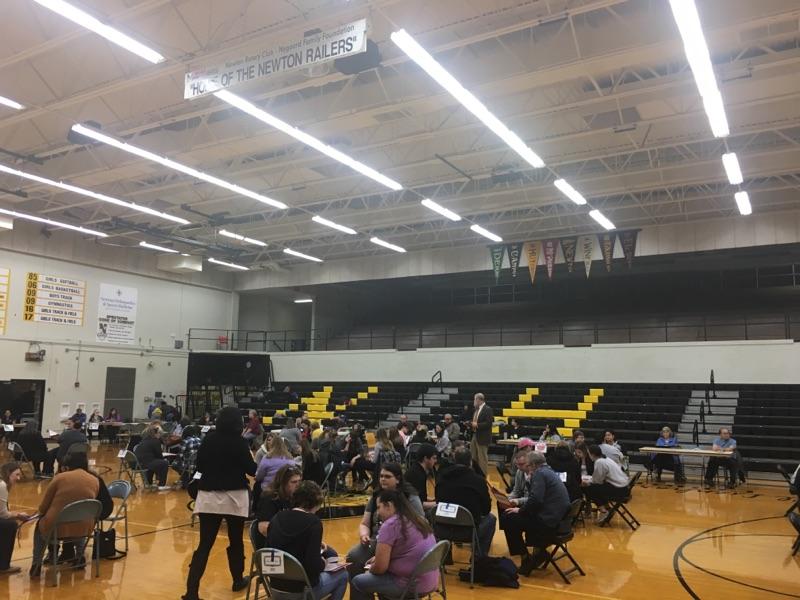Poverty simulation takes place, helps faculty empathize with less fortunate students
More stories from Kaete Schmidt
Poverty is something that affects many people worldwide. They may not notice it, but most people see someone everyday that is living in poverty. Rebecca Lewis-Pankratz from ESSDACK knows what it is like to live in poverty and wants to raise awareness of poverty and help community and school members better understand what it’s like. In order to do this, Lewis-Pankratz put on, for the first time, a poverty simulation. This happened on Feb. 16 in Ravenscroft Gym at the high school.
The poverty simulation consisted of many people from the community and school services who were each assigned a different role to help better understand what it may be like to be a family in poverty.
“Each of them had a little notebook. They were given a role anywhere from a mortgage lender, to a church, to a bank. The judge was there, the police, so all different angles. They also had there, to make it even more real, some drug dealers and some thieves. People were coming to try and get you to sell drugs and buy drugs to make your money that you didn’t have or steal your money,” assistant superintendent of instructional services Sheila Wendling said.
All of the participants were people who they thought would be a good fit and be able to truly help students living in poverty.
“We had food service, transportation, our tech department, people that work at district office, bus drivers and then a lot of our aides and paras. Just having that compassion can help people recognize students that are struggling. Even if it’s that bus driver that sees them in the morning or drops them off before they go to school. Or the custodian that’s cleaning up in the classroom or in the hallway and sees a kid that might not be having a very good day. Hopefully it’s really opening everybody’s eyes,” Wendling said.
Wendling believes that many will benefit from this program and is hoping to make a change in the community by helping school services better understand what a student may be going through.
“We might think that someone is just misbehaving and it’s because they are choosing to, but that might not be the only reason. They might just really be stressed with all of the things that are going on in their home life and trying to find that one caring adult that can say ‘You’re going to be alright. We are going to get you through it and we’re going to figure it out’,” Wendling said.
After the success of this year’s poverty simulation, Wendling hopes to be able to continue it in the future to make a bigger impact on the community and work to raise even more awareness.
“We had a few community members that were with us, but i’d like to have more. So, if there were more business and people that could come in and see what it’s like as i’ve heard Rebecca say that’s the part that makes the biggest difference,” Wendling said. “If the whole community is working together to help each other get stronger.”

